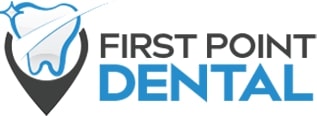Best Teeth Whitening and Dental Cleaning in Chicago for a Beautiful Smile
Teeth Whitening Vs. Dental Cleanings: Everyone wants a beautiful, healthy smile that lasts a lifetime. To achieve and maintain this, it’s essential to take good care of your oral health and lead a healthy lifestyle. Simply brushing and flossing your teeth every day isn’t sufficient. Regular dental check-ups and professional teeth whitening and teeth cleanings are equally important for your oral well-being and overall health.
Many people confuse professional teeth whitening with professional dental cleaning. While both dental services provide a brighter smile, they vary in procedure and what purpose they serve. People do teeth whitening for cosmetic reasons, to remove stains or discoloration from teeth and enhance the appearance of their smile. It does not involve the removal of dental plaque or tartar as done in dental cleaning. Patients undergo teeth cleanings as a part of their oral hygiene care regimen to maintain long-term oral health and prevent dental issues.
This blog delves into the difference between teeth whitening and dental cleaning, highlighting their respective procedures and benefits.
Dental Cleaning- How It Helps Enhance Your Smile
Improper oral hygiene or care can result in dental plaque accumulation on the teeth. Dental plaque is a white, sticky film of bacteria that feeds on the food stuck on the tooth surface. When plaque is left untreated, it transforms into its harder form known as tartar. Only a dental hygienist or dentist can remove both dental plaque and tartar.
Dental cleaning, alternatively referred to as dental prophylaxis or professional teeth cleaning, constitutes a routine dental service conducted by dental hygienists or dental professionals. In the course of a dental cleaning procedure, specialized dental instruments known as scrapers are employed to eliminate the accumulation of dental plaque or calculus/tartar that develops between the teeth or along the gum line. This process is particularly crucial in regions that are challenging to access through daily brushing and flossing.
The procedure ends with the polishing of teeth using gritty toothpaste and a high-powered electric toothbrush. Polishing helps remove stains from the tooth surface and makes teeth look smoother.
Regular dental check-ups and cleanings are typically recommended twice a year. However, if an individual is spotted with any dental concern, frequent dental visits will be needed to get it treated.
Benefits of Dental Cleaning
- Prevents gum infection and disease- With teeth cleaning, plaques or tartar build-up in the mouth is eliminated. As dental plaque or tartar are major contributors to gum infections or gum diseases, removing them significantly reduces the risk of developing gum problems.
- Provides fresher breath- With the removal of plaque or tartar during a dental cleaning, bad breath, and taste are no longer there. Bad breath and taste are the result of bacteria present in the dental plaques or tartar.
- Allows early detection of dental problems- At the time of teeth cleaning, the dental hygienist or dental professional examines the oral cavity of the patient which enables them to spot any potential dental issues like dental caries, cracked teeth, or signs of oral cancer. By early detection of such dental issues, the chance of successful treatment is higher.
- Helps maintain overall oral health- By regularly getting rid of dental plaque or tartar, the natural teeth, and gums remain healthy for a long time.
Teeth Whitening Vs. Dental Cleanings – To get Beautiful and Confident Smile
Many people have stained or discoloured teeth due to excessive smoking, daily excessive consumption of tea and coffee, intake of certain medications, or aging. Teeth whitening, also referred to as dental bleaching, is a cosmetic dental service designed to lighten the natural shade of the teeth and improve their appearance.
During the in-office teeth whitening procedure, the stains and discolorations on the teeth’ surface are eliminated with the help of powerful dental bleach. Before bleaching, the dentist may use a pumice stone to polish the teeth’ surface and remove any dental plaque. A barrier is placed along the gum line inside the patient’s mouth to prevent the bleaching agent from coming in contact with fleshy mouth parts like cheeks, gums, and tongue and to increase its absorption rate on the teeth surface. Throughout the procedure, the patient’s mouth is kept wide open using specialised dental tools.
The powerful teeth whitening agent used at professional teeth whitening is highly concentrated hydrogen peroxide gel. It is applied to teeth with a syringe and left on the teeth surface for 15 to 30-minute increments.
In some cases, a high-intensity light like blue LED light, halogen, or UV is applied to the teeth after the application of the whitening agent. The light is directed by a laser device or a lamp placed outside the patient’s mouth and helps activate the dental bleaching agent. Teeth whitening treatment can be performed in a dental clinic by a dental professional or at home with the help of professional-grade whitening kits prescribed by the dentist. Dentists provide the patient with take-home, custom-fabricated teeth whitening trays. The teeth whitening trays usually contain a carbamide-peroxide gel instead of hydrogen peroxide.
Benefits of Teeth Whitening
- A non-invasive procedure- There is no surgery involved in professional teeth whitening. The procedure is generally safe and painless when carried out under dental professional supervision.
- Enhances smile appearance- Professional teeth whitening generally removes teeth stains or discoloration and makes the teeth 3-8 shades brighter and more aesthetically appealing than before. A brighter smile can boost the patient’s self-confidence and improve overall facial aesthetics.
- Personalized treatment- Despite which method of teeth whitening one chooses, professional teeth whitening is a customized dental service. Both in-office teeth whitening and at-home kits are personalized treatments performed to meet patients’ specific needs and desired level of teeth whitening.
- Quick, noticeable results- Teeth whitening treatments typically provide visible results in a very short time period. If performed in the dental office, teeth whitening often yields immediate results. However, at-home teeth whitening kits can provide the desired treatment outcome only after consistent use for a few weeks.
Have any concerns about teeth health or appearance or want to learn more about teeth whitening Vs. dental cleanings? Or Due for a dental check-up?
Contact First Point Dental Clinic for dental advice and affordable dental services from our experts. Contact us to schedule a dental appointment for teeth whitening or dental cleaning today!

